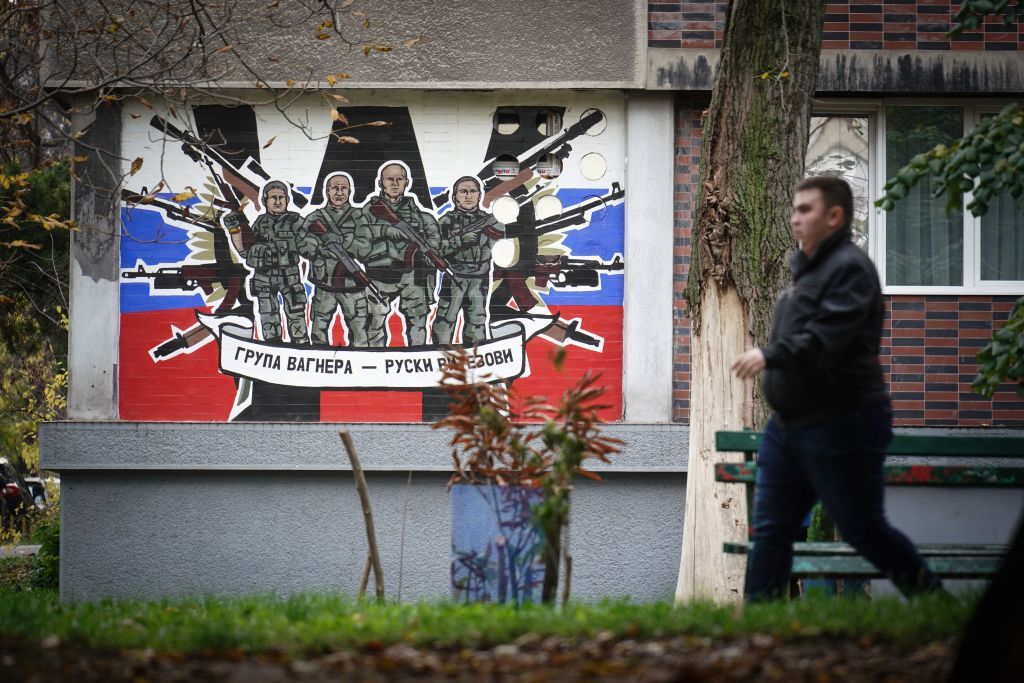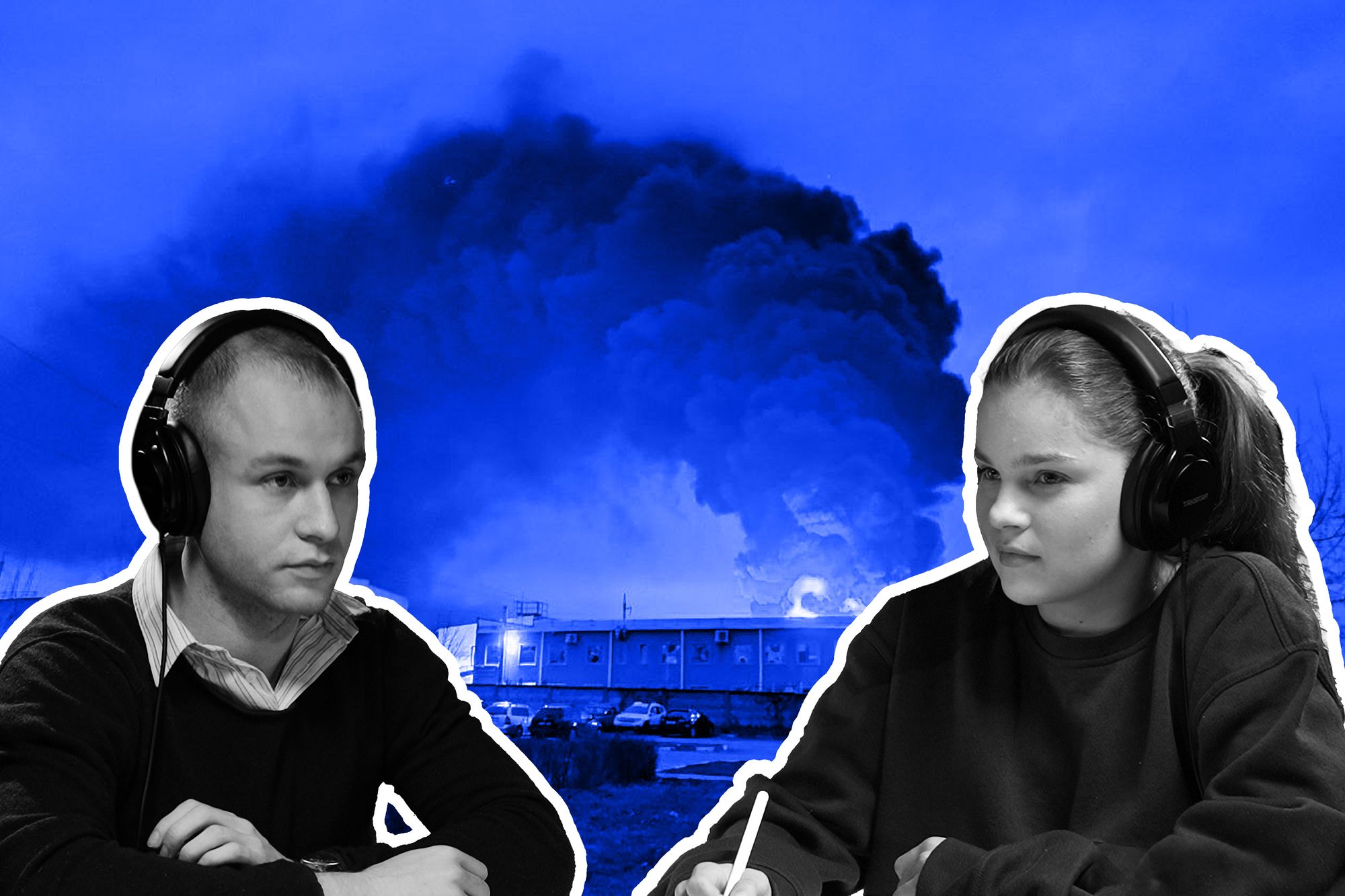
Key developments on May 5:
- Ukraine retrieves bodies of 80 fallen soldiers
- Russia tries to seize Bakhmut by May 9, Defense Ministry says
- Wagner mercenaries to withdraw from Bakhmut on May 10 due to 'ammo lack,' Prigozhin claims in another vocal exchange with top military command
- Drone strikes oil refinery in southern Russia
- Russian proxies announce displacement of civilians from southeastern front-line settlements
Deputy Defense Minister Hanna Maliar said on May 5 that Russia is trying "with all its might" to seize Bakhmut in Donetsk Oblast by May 9, the day Russia celebrates victory over Nazi Germany.
Over the years, the public holiday has been widely used by Russian propaganda, turning it into a show of military force.
Maliar added Russia's Wagner Group mercenaries are being redeployed from other positions and replaced with airborne assault units to capture embattled Bakhmut after almost a year of intense fighting in the area.
Meanwhile, Wagner Group founder Yevgeny Prigozhin announced that the mercenaries would withdraw from Bakhmut on May 10 due to a "70 percent shortage of ammunition."
"I am withdrawing Wagner units from Bakhmut because, in the absence of ammunition, they are doomed to a senseless death," Prigozhin said in a video published on May 5.
The Bakhmut offensive will be handed over to the Russian Defense Ministry, Prigozhin added.
Prigozhin, known as 'Putin's chef' for catering contracts with the Kremlin and Russia's Defense Ministry, lashed out at the Russian military command again for the alleged failure to provide his mercenaries with artillery shells.
In an expletive-laden video address, Prigozhin blamed Russia's Defense Minister Sergei Shoigu and Chief of the General Staff Valery Gerasimov for the lack of ammo that caused the deaths of his mercenaries on the battlefield.
The U.S. intelligence estimated that Russia had suffered 100,000 military casualties in the last five months in the Bakhmut sector and elsewhere in Ukraine. The estimated number suggests over 20,000 Russian troops were killed in action, around half of which were the Wagner mercenaries.
Prigozhin has repeatedly complained about ammunition shortages, blaming Russia's top military leadership and threatening to abandon positions in and around Bakhmut if Wagner mercenaries would be denied additional supplies.
The Wagner mercenaries have served as the main attacking force in Russia's attempts to seize Bakhmut and the entire Donetsk Oblast, more than half of which it currently occupies.
The Battle of Bakhmut has been raging on since last June. Russian troops have only made incremental gains, experiencing heavy casualties in the area. Ukraine still holds western parts of the city.
Russia keeps its primary military goal of capturing Donetsk Oblast.
The General Staff of Ukraine's Armed Forces said in its evening update on May 5 that Bakhmut, Avdiivka, and Marinka remain the primary targets of Russia's offensive in the region.
Ukraine's forces repelled more than 30 Russian attacks in these areas on May 5, the military said.
According to the General Staff, the most severe fighting is ongoing in Bakhmut and Marinka, a small industrial town north of Russian-occupied Donetsk.
Apart from Donetsk Oblast, Russian forces also attacked Sumy, Chernihiv, Luhansk, Kharkiv, Zaporizhzhia, Dnipropetrovsk, and Kherson oblasts with artillery, missiles, and guided bombs, according to the military.
 Kyiv IndependentIgor Kossov
Kyiv IndependentIgor Kossov
Ukraine retrieves bodies of fallen soldiers
The Reintegration Ministry reported on May 5 that the bodies of 80 fallen Ukrainian soldiers were transferred from the Russian-occupied territories to the government-controlled area.
The Office of the Commissioner for Missing Persons and Ukrainian law enforcement carried out the transfer, according to the ministry.
The Geneva Conventions dictate that people who lost their lives during war are entitled to a dignified burial.
On April 14, Ukraine retrieved 82 bodies of fallen soldiers.
The Coordinating Headquarters for the Treatment of Prisoners of War reported in early March that the bodies of over 1,400 fallen soldiers had been brought back to Ukraine since the start of the full-scale invasion in February last year.
Ukraine and Russia don't disclose their military casualties during the war.
The General Staff of Ukraine Armed Forces estimates Russia has lost 193,210 troops in Ukraine since the beginning of its full-scale invasion.
Leaked U.S. intelligence documents suggest that as of March, up to 354,000 Ukrainian and Russian soldiers have been killed or wounded in action since February 2022.
The documents allege between 15,500-17,500 Ukrainian troops were killed and 109,000-113,500 wounded. Russia is believed to have 35,500-43,000 troops killed and 154,000-180,000 wounded.
Drone attacks oil refinery in southern Russia
The Russian state-controlled news agency reported an alleged drone attack on May 5 on an oil refinery in Russia's southern Krasnodar region.
This reportedly was the second attack in two days, as the same Russian oil refinery was hit the day before.
There have been an increasing number of reports concerning attacks on railways and oil depots inside Russia in recent weeks.
The U.K. Defense Ministry said in a report on May 5 that these incidents have "almost certainly caused short-term localized disruption" to the Russian military.
A train carrying fuel was derailed in Bryansk Oblast on May 1, while a drone allegedly hit an oil refinery in Rostov Oblast overnight on May 4.
So far, nobody claimed responsibility for these incidents.
The rising number of sabotage acts inside Russia suggests that the country will "highly likely remain unable" to protect its rail networks against further sabotage acts, the U.K. Defense Ministry said in its intelligence update on May 5.
The number of incidents inside Russia increased in the wake of anticipated Ukraine's counteroffensive, which is to be reportedly launched soon.
In late March, Ukraine's counteroffensive has been planned in several areas, Defense Minister Oleksii Reznikov said.
The counteroffensive can be launched anywhere along the almost 1,000-kilometer front line.
Russian proxies in southern Zaporizhzhia Oblast plan to displace 70,000 Ukrainians deeper into the Russian-occupied territories, a top Moscow-installed proxy Andrey Kozenko told Russian state-controlled media on May 5.
The displacement is already underway in the Polohy community, from which 500 civilians were deported to the Russian-occupied port city of Berdiansk, Kozenko said.
Yevgeny Balitsky, another top Russian proxy in the region, announced the displacement of residents of 18 front-line settlements.
Balytskyi called the displacement an "evacuation" caused by alleged "increased enemy's shelling" of the Russian-occupied settlements.
Deporting civilians violates the Geneva Conventions and constitutes a war crime.
 Kyiv IndependentAnastasiia Lapatina
Kyiv IndependentAnastasiia Lapatina
Comments
No comments yet. Be the first to react!